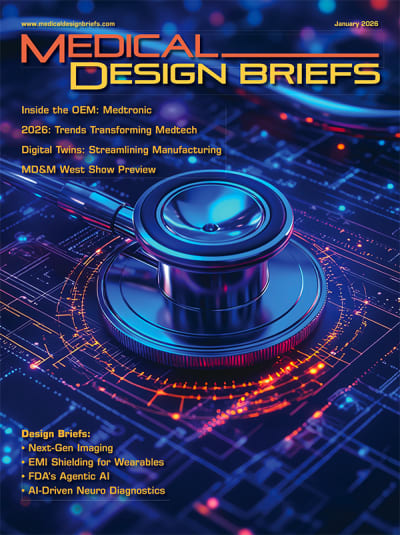On December 13, 2024, the U.S. Food and Drug Administration (FDA) notified the Medical Device Innovation Consortium (MDIC) of their final approval of the MDIC Report on the MedAccred Accreditation and Audit Program for Contract Sterilizers (Final Report). FDA inspections of firms, such as contract sterilizers, are pursuant to Title 21-Food and Drugs, Chapter 9 – Federal Food, Drug, and Devices, Part A-Drugs and Devices, Section 21 USC 360: Registration of producers of drugs or devices, Subsection (h) Inspections.1 The FDA notification is the culmination of a pilot study initiated by the Performance Review Institute (PRI) in 2023 in collaboration with MDIC and the FDA to evaluate PRI’s MedAccred Sterilization Audit and Accreditation Program of contract sterilizers. The agency confirmed that MedAccred is as an acceptable audit approach that may be leveraged for regulatory purposes as well as supplier oversight.
MedAccred is an industry-managed, consensus-driven approach to ensuring critical manufacturing process quality throughout the medical device supply chain. The MedAccred program is administered by PRI and governed by the original equipment manufacturer (OEM) subscribers who define program requirements, review audit reports, and accept non-conformance resolutions. MedAccred provides a consistent/standardized critical process accreditation accepted by the medical device industry resulting in fewer redundant onsite audits by multiple OEMs.
The in-depth critical process audits are compliant and consistent with accepted industry/technical standards and are conducted by subject matter experts. The MedAccred program provides greater visibility of the supply chain to all levels and sub-tiers that provide critical processes, consistent with regulatory requirements (e.g., FDA, ISO 13485, MDD, etc.). The utilization of medical device industry-accepted and consistent technical requirements leads to process discipline, greater operational efficiency, and continuous improvement resulting in higher quality and lower overall cost.
The MedAccred sterilization audit is an independent process focused assessment of a contract sterilization facility’s conformance to the sterilization standards for ethylene oxide – ISO 11135 and/or radiation (gamma, e-beam, and x-ray) – ISO 11137. MedAccred audit elements include but are not limited to evaluating compliance to IQ/OQ/PQ requirements; validation, maintenance, and calibration of equipment; qualification and training of personnel; process validation; sampling plans; root cause evaluation of non-conformances; and evidence of corrective actions with verification of effectiveness.
The MedAccred sterilization audit also includes a full quality management systems (QMS) audit assessing conformance to ISO 13485 (2016) and 21 CFR 820. Unlike traditional quality management system audits, the MedAccred audit is a thorough, vertical manufacturing process audit. A quality management system serves as the foundation, and a current valid QMS certification, such as ISO 13485, is required before scheduling a MedAccred accreditation audit. The two types of audits together, both the QMS and process audit, ensure that the highest product quality standards have been achieved.
About MedAccred
MedAccred is a medical device industry managed critical process supply chain oversight program that reduces risk to patient safety, assures quality products and verifies compliance with requirements. The program is administered by the Performance Review Institute.
About PRI
The Performance Review Institute (PRI) facilitates collaborative supply chain oversight programs, quality management systems approvals, professional development, and customized solutions in industries where safety and quality are shared values. Our work helps to improve product quality and safety while reducing costs and is aligned with the most technologically advanced companies and engineering efforts in the world.
Analysis of the pilot study results demonstrated that the MedAccred auditors were highly qualified, and the audit processes were thorough and comprehensive. An FDA participant observed, “I thought the audit was thorough and covered all critical areas of an EO sterilization process… Both auditors demonstrated their knowledge on EO sterilization during the audit and the two minor nonconformances were appropriate… I was impressed with the MedAccred audit.” Comparison of the MedAccred audit and regulatory inspectional elements were found to be at least equivalent, and in some areas more in-depth, than industry standards.
The MedAccred Sterilization Audit and Accreditation program presents substantial benefits to key stakeholders in the medical device industry. OEMs can leverage MedAccred audits to reduce redundant onsite audits at contract sterilizers, allowing companies to redirect resources, improving operational efficiency and lowering costs. The MedAccred program also provides greater visibility throughout the supply chain and assurance of product sterility and patient safety. Contract Sterilizers benefit from comprehensive and thorough technical and QMS audits by experienced auditors, ensuring high product quality standards, and ongoing continuous improvement initiatives.
MedAccred aligns with FDA’s goal of effective oversight in a complex global environment and allows the FDA to potentially leverage MedAccred audit data for regulatory purposes, aiding in risk-based inspection planning and resource allocation.
Reference
- Title 21-FOOD AND DRUGS, CHAPTER 9-FEDERAL FOOD, DRUG, AND COSMETIC ACT; SUBCHAPTER V-DRUGS AND DEVICES; Part A-Drugs and Devices; Section 21 USC 360: Registration of producers of drugs or devices; Subsection (h); Inspections; Text contains those laws in effect on November 29, 2023.
To learn more about The MedAccred Sterilization Audit and Accreditation program, visit here medaccred or contact MedAccred at



